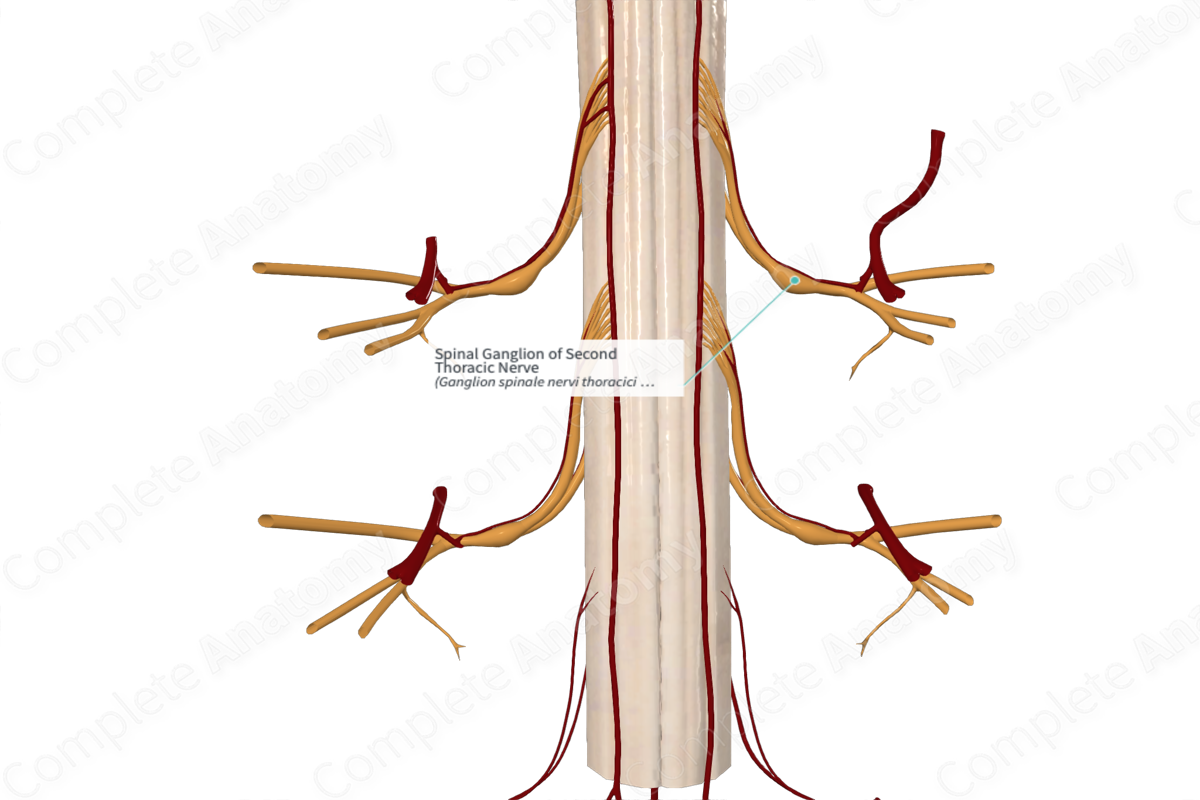
Spinal Ganglion of Second Thoracic Nerve
Ganglion spinale nervi thoracici secundi
Read moreSpinal Ganglion of Second Thoracic Nerve Description
The spinal ganglion (dorsal root ganglion or posterior root ganglion) is a sensory ganglion found at the proximal end of the posterior root of each spinal nerve.
The spinal ganglion of the second thoracic nerve conveys sensory information from the periphery and thoracic viscera to the dorsal horn of the second thoracic spinal segment of the spinal cord.
All somatic sensation associated with the second thoracic nerve, including the medial arm, axilla, second intercostal space, and skin of the upper trunk (see dermatome map) is conveyed by the neurons of the second thoracic spinal ganglion.
Some visceral afferent sensation from the thoracic organs (heart, lungs) is conveyed by neurons of the second thoracic spinal ganglion.
Related parts of the anatomy
Spinal Ganglion of Second Thoracic Nerve List of Clinical Correlates
—Referred pain
Learn more about this topic from other Elsevier products
Spinal Ganglion

The spinal ganglion is formed by the cell bodies of the primary sensory neurons.


